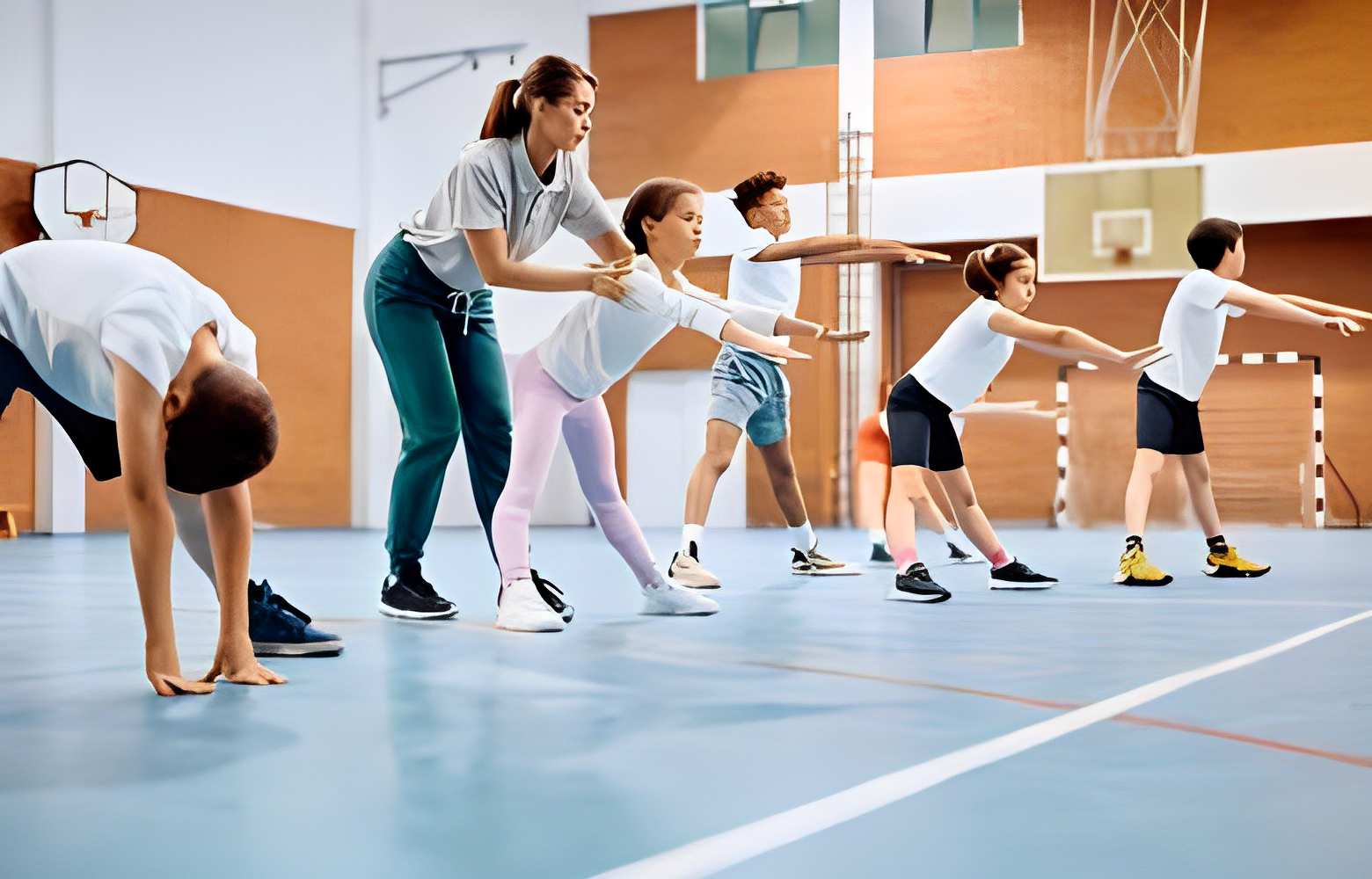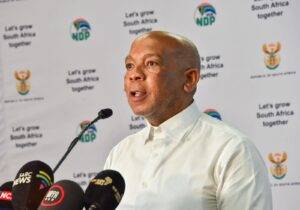In the landscape of education, physical education emerges as a dynamic and multifaceted discipline. It transcends the traditional confines of textbooks and classrooms, encompassing a holistic approach to the development of individuals. Beyond the apparent focus on physical fitness, it is a profound journey that nurtures the mind, body, and spirit. Physical education seeks to instill values, foster resilience, and lay the groundwork for a lifetime of well-being. It is not just about exercise; it is about understanding the essence of a healthy, balanced life—one that goes beyond the confines of academic achievement.
Physical Well-being: The Cornerstone of Physical Education
At the heart of physical education lies the cornerstone of physical well-being. It is the foundational element that empowers individuals to build and maintain a robust physique. Through a diverse range of activities, from cardiovascular exercises to strength training, physical education provides a comprehensive toolkit for individuals to enhance their physical health. The emphasis on wellness extends far beyond the confines of a gymnasium, aiming to cultivate habits that contribute to a lifetime of vitality. By prioritizing physical well-being, physical education becomes not just a subject but a lifelong companion on the journey to health and fitness.
Moreover, the holistic nature of physical well-being extends to mental and emotional dimensions. The interconnectedness of physical and mental health is a central tenet of physical education. By promoting physical well-being, this discipline becomes a holistic approach to health, addressing not only the outward aspects of fitness but also the internal dimensions of mental and emotional wellness.
Cognitive Benefits: How Physical Education Boosts Brainpower
The profound impact of physical education on cognitive function is a testament to the intricate connection between body and mind. Engaging in regular physical activity has been scientifically proven to boost brainpower and enhance cognitive abilities. The increased blood flow and oxygenation to the brain during exercise stimulate the growth of new neurons and improve neural connectivity. These neurological changes translate into tangible cognitive benefits, including heightened concentration, improved memory retention, and enhanced problem-solving skills.
Furthermore, the cognitive benefits of physical education extend beyond the immediate academic realm. The skills developed through physical activities, such as strategic thinking and quick decision-making, have far-reaching implications in various aspects of life. Physical education, therefore, becomes a conduit for shaping individuals who not only excel academically but also possess the cognitive prowess to navigate the complexities of the modern world.
In a world where mental acuity is a prized asset, physical education emerges as a holistic approach to nurturing both the body and the mind. It is not merely a supplementary activity but a fundamental element in the cognitive development of individuals, laying the groundwork for a future generation equipped with intellectual resilience and agility.
Social Development: Fostering Teamwork and Communication through Physical Education
Physical education transcends the boundaries of individual exercise, providing a unique platform for social development. The inclusion of team sports and collaborative activities within this educational framework fosters essential social skills such as teamwork, communication, and leadership. These interpersonal skills are not just valuable on the playing field; they become invaluable assets in the broader context of life.
Team sports, in particular, offer a microcosm of society where individuals learn to collaborate, communicate effectively, and collectively work towards a common goal. The dynamics of team-based physical activities instill a sense of responsibility and accountability, teaching individuals that success is often a collective effort. Moreover, the shared challenges and victories experienced in team sports contribute to the development of empathy and camaraderie, fostering a sense of community that extends beyond the boundaries of the sports arena.
Physical education, therefore, emerges as a social laboratory where individuals not only enhance their physical fitness but also learn the intricacies of human interaction. It becomes a space where the values of cooperation, communication, and leadership are not just taught but experienced—a vital component in shaping socially adept and emotionally intelligent individuals.
Lifelong Habits: Cultivating a Love for Active Lifestyles
The enduring gift of physical education lies in its ability to cultivate a love for active lifestyles that transcends the school years. By introducing individuals to a diverse range of physical activities—from traditional sports to recreational pursuits—physical education becomes a catalyst for the formation of lifelong habits. These habits extend far beyond the structured environment of a physical education class, influencing individuals to embrace physical activity as an integral part of their daily lives.
The variety inherent in physical education allows individuals to discover activities that resonate with their interests and preferences, making the pursuit of fitness a personal and enjoyable journey. Whether it’s a love for dance, a passion for outdoor activities, or an affinity for team sports, physical education provides a smorgasbord of options, ensuring that everyone can find a mode of exercise that brings joy and fulfillment.
Moreover, the cultivation of a love for active lifestyles through physical education contributes to the prevention of sedentary behaviors that are increasingly prevalent in modern society. By instilling the importance of movement and exercise, physical education becomes a proactive force against the sedentary lifestyles that contribute to various health issues. It is a lifelong investment in health and well-being, ensuring that individuals carry the torch of active living into adulthood and beyond.
Emotional Wellness: The Role of Physical Education in Mental Health
Beyond the physical and cognitive dimensions, the impact of physical education on emotional wellness is a critical aspect of its holistic approach. Regular engagement in physical activity has been proven to be a powerful tool in promoting mental health and emotional well-being. The release of endorphins during exercise acts as a natural mood enhancer, alleviating stress, anxiety, and depression.
Physical education, therefore, becomes a sanctuary for mental wellness—a designated space where individuals can channel their energy, release pent-up emotions, and find solace in the rhythm of movement. The mind-body connection established through physical activity creates a harmonious balance that extends beyond the immediate exercise session, contributing to a sustained sense of emotional equilibrium.
Furthermore, physical education serves as an avenue for the development of emotional intelligence. Through team sports and cooperative activities, individuals learn to navigate the complexities of interpersonal relationships, manage conflicts, and develop resilience in the face of challenges. These emotional skills are not only crucial for mental well-being but also serve as invaluable tools for success in various personal and professional spheres.
In a world where the prevalence of mental health challenges is on the rise, the role of physical education in promoting emotional wellness becomes increasingly significant. It is not just about physical fitness; it is a holistic approach to nurturing individuals who are emotionally resilient, self-aware, and equipped to navigate the complexities of the human experience.
Academic Performance: Unveiling the Connection Between Physical Activity and Learning
The intersection of physical activity and academic performance is a fascinating aspect of the impact of physical education on overall development. Contrary to the traditional dichotomy between physical education and academic pursuits, research consistently highlights the positive correlation between regular physical activity and academic achievement.
The physiological mechanisms behind this connection are multifaceted. Regular exercise promotes increased blood flow and oxygenation to the brain, creating an optimal environment for cognitive function. The release of neurotransmitters such as dopamine and norepinephrine during physical activity enhances attention and focus, contributing to improved concentration in academic tasks.
Moreover the positive impact of physical education on academic performance extends beyond the immediate physiological effects. The discipline and time management skills cultivated through consistent engagement in physical activities translate into effective study habits and academic diligence. Individuals who participate in regular physical education often exhibit enhanced problem-solving skills, critical thinking abilities, and a proactive approach to learning.
Physical education becomes a complementary force in the academic journey, enriching the overall educational experience. It challenges the notion that time spent on physical activities detracts from academic pursuits, emphasizing instead that a balanced approach to education, encompassing both physical and mental dimensions, yields the most fruitful results.
Inclusive Education: Adapting Physical Education for All Abilities
In pursuit of inclusive education, physical education plays a pivotal role in adapting to the diverse abilities of individuals. The principles of inclusivity go beyond mere accommodation; they encompass a proactive approach to ensuring that physical education is accessible and meaningful for everyone, regardless of physical abilities.
Adaptations in physical education range from modified activities and equipment to differentiated instructional strategies that cater to individual needs. Inclusive physical education not only promotes a sense of belonging for individuals with diverse abilities but also fosters an environment where everyone can actively participate and contribute.
Furthermore, the inclusive nature of physical education has broader implications for societal attitudes towards diversity and inclusion. By embracing and celebrating differences in physical abilities, physical education becomes a microcosm of a society that values and respects the unique contributions of each individual. It is a powerful tool in challenging stereotypes, breaking down barriers, and promoting a culture of inclusivity that extends beyond the realms of sports and exercise.
Inclusive physical education is not merely a checkbox in the curriculum; it is a philosophy that recognizes and celebrates the diversity of human capabilities. It is a commitment to ensuring that every individual, regardless of physical abilities, has the opportunity to experience the benefits of physical education and contribute to a culture that values the inherent worth of each person.
Building Character: The Ethical and Moral Lessons of Physical Education
Physical education emerges as a potent arena for the development of character—a space where ethical and moral lessons are woven into the fabric of physical activities. The challenges presented in sports and physical endeavors become opportunities for individuals to cultivate virtues such as discipline, resilience, and sportsmanship.
In the face of competition and adversity, individuals learn the value of discipline through the consistent practice and dedication required for physical mastery. The commitment to a fitness routine, the perseverance in overcoming physical challenges, and the adherence to rules in sports all contribute to the development of a disciplined character.
Resilience, another cornerstone of character development, is inherently intertwined with the nature of physical activities. Whether facing defeat in a game or pushing through physical fatigue during exercise, individuals learn to bounce back from setbacks, developing a resilient mindset that extends beyond the playing field.
Sportsmanship, perhaps one of the most emphasized ethical aspects of physical education, instills principles of fair play, respect for opponents, and gracious acceptance of outcomes. These lessons go beyond the immediate context of sports, shaping individuals who approach challenges with integrity and empathy.
The team dynamics inherent in many physical activities contribute to the development of leadership skills and an understanding of collective responsibility. Individuals learn to navigate group dynamics, communicate effectively, and contribute positively to a shared goal. These ethical and moral lessons become the building blocks of individuals with strong character, capable of navigating the complexities of life with integrity and compassion.
Future Impact: How a Strong Foundation in Physical Education Shapes Tomorrow’s Leaders
As we envision the leaders of tomorrow, physical education emerges as a formative influence that shapes the trajectory of individuals from a young age. The skills, values, and habits cultivated through a strong foundation in physical education become the building blocks of leaders who are not only physically fit but possess a holistic set of attributes essential for success.
The resilience instilled through overcoming physical challenges becomes a mental fortitude that equips future leaders to navigate uncertainties and setbacks. The discipline cultivated in the pursuit of physical well-being translates into a work ethic that is essential for leadership roles. The teamwork and communication skills honed in the arena of sports become the cornerstone of effective leadership and collaboration.
Moreover, the ethical and moral lessons of sportsmanship and fair play become the guiding principles that shape the character of future leaders. In a world that demands not only competence but also integrity, physical education becomes a crucible for the development of leaders who lead with ethical principles and a commitment to the well-being of others.
The cognitive benefits of physical education, including enhanced problem-solving skills and critical thinking abilities, contribute to the intellectual acuity of future leaders. The holistic approach to education that encompasses both physical and mental dimensions ensures that leaders are not only proficient in their fields but possess a well-rounded perspective that enables them to address complex challenges.
A strong foundation in physical education becomes an investment in the leadership potential of individuals. It is a proactive approach to nurturing leaders who are not only equipped with the skills and knowledge necessary for success but are also grounded in principles of resilience, discipline, and ethical leadership. As we look towards the future, physical education stands as a cornerstone in shaping leaders who will navigate the complexities of the global landscape with grace, competence, and a commitment to the well-being of society.
Conclusion
In conclusion, the multifaceted impact of physical education on individuals cannot be overstated. It is not merely a subject in the curriculum; it is a dynamic and integral component of holistic education. From the foundational aspects of physical well-being to the cognitive, social, and emotional dimensions, physical education contributes to the comprehensive development of individuals.
Advocating for the continued importance of physical education is not a call to prioritize one aspect of education over another. Instead, it is a recognition of the interconnectedness of physical, mental, and emotional well-being. It is an assertion that a balanced approach to education, one that includes the nurturing of both the body and the mind, is essential for the holistic development of individuals.
The inclusive nature of physical education underscores its relevance in a diverse and evolving world. By adapting to the abilities of all individuals, physical education becomes a champion of inclusivity and diversity. It becomes a space where everyone, regardless of physical abilities, can actively participate and benefit from the myriad advantages that physical education offers.
As we advocate for the continued importance of physical education, we are not just championing a subject; we are endorsing a philosophy that recognizes the intrinsic value of physical well-being, the cognitive benefits of exercise, and the character-building aspects of sports and physical activities. It is a call to ensure that future generations have the opportunity to experience the holistic benefits of physical education, laying the groundwork for a society that values and prioritizes the well-being of its individuals.
In a world that is constantly evolving, physical education stands as a timeless pillar—a foundational element that contributes to the formation of individuals who are not only physically fit but possess the resilience, discipline, and ethical principles necessary to navigate the complexities of life. As we advocate for the continued importance of physical education, we are advocating for the holistic development of individuals, shaping a future generation that is not only academically proficient but also emotionally intelligent, socially adept, and physically resilient.














